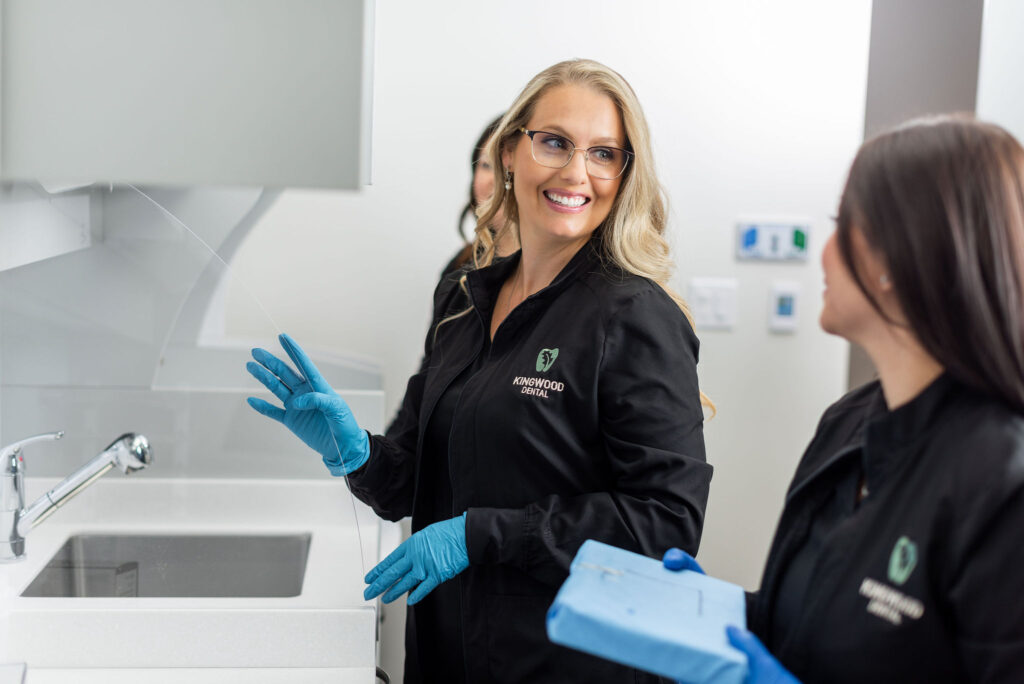How often should you go to the dentist?
The frequency you should go to the dentist largely depends on your oral health and hygiene. A few decades ago during military entrance exams, it became clear that American’s teeth were not in good shape.
Dental organizations and health care providers determined it would be helpful to create a standard to prevent tooth decay and gum disease. They recommended people go to the dentist every six months for regular checkups and cleanings
The twice a year recommendation has proven to be a useful guideline for patients to follow. Dental visits should be scheduled based on a patient’s oral health, daily hygiene and risk factors.
Even people who take excellent care of their teeth and gums need to visit the dentist regularly. Dentists can look for and identify issues before they become a greater problem. Many problems like cavities, gum disease and cancer are not visible or don’t cause discomfort until they are in their advanced stages. Frequent visits to your dentist can aid in early detection of issues and they can be treated before they are unmanageable.
The guideline to visit the dentist every six months works well for most. Some are able manage going longer between visits and others may require more frequent visits. People who do not have a high risk for cavities or gum disease are able to see their dentist annually. Alternatively, people who are at a higher risk for dental disease may need to visit the dentist every three or four months. People who are at a higher risk for issues and may need to see the dentist more frequently include:
- Cancer patients - Treatment for cancer can cause oral health problems such as dry mouth and infection
- Diabetes - People with diabetes are at a higher risk of gum disease, fungal infections, and other oral problems
- Heart disease - Overall dental health is connected to heart health. Frequent dental cleanings may reduce your risk of heart attack and stroke
- HIV positive - HIV and its treatment create a higher risk of dental decay and infections.
- Pregnant women - Pregnancy hormones can cause an inflammation of the gums called gingivitis in addition to other problems
- People who have existing gum disease
- People who tend to get cavities easily or who have excessive plaque build-up
- Smokers – The use of tobacco is a risk factor for periodontitis which is a severe gum disease in addition to oral cancer
A person’s dental schedule and need to check-ups may change over time. If a person is under stress or has an illness, they may need to see the dentist more frequently.
In addition to regular checkups, patients should visit their dentist in the following situations:
- Experiencing chronic tooth or gum pain
- Gums are red, swollen or bleeding
- Persistent mouth sores which do not improve over time
- Heat, cold or pressure sensitivity in teeth
- Loss of a filling
- Chronic dry mouth
- Jaw pain or clicking
Taking good care of your teeth and gums at home can help extend the time between visits. Work with your dentist to determine the best schedule for your oral health.
More on General Dentistry : Holistic Dentistry













